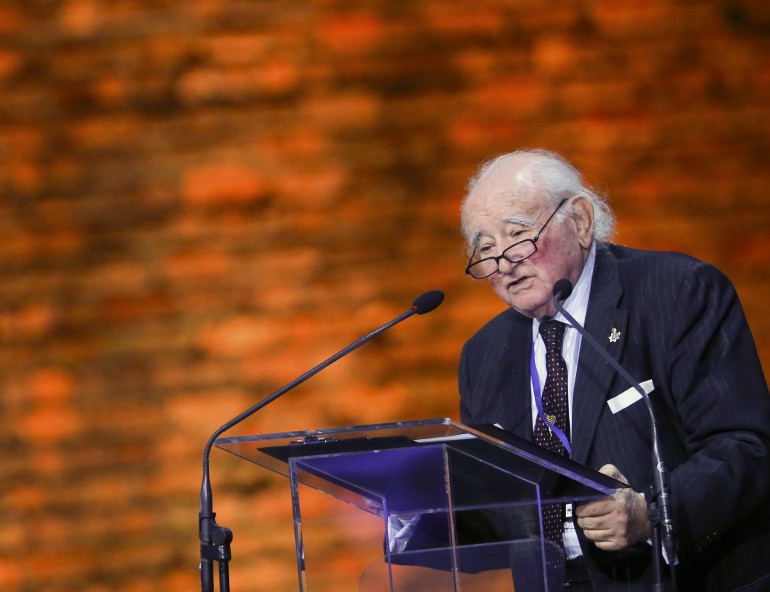By Brendan Quinn
Ceremonies were held all over the world to mark the 70th anniversary of the liberation of the Auschwitz death camps by Soviet Soldiers on January 27th, 1945.
The largest of the events took place in Poland, in what remains of the camp where 1.1 million people were killed between 1940 and 1945. Attendees were able to hear personal testimony from survivors and family members of victims of the holocaust.
The ceremony took place in the camp itself, under a large temporary structure erected near the “Gates of Death”, where trains carrying prisoners would unload them to what for most would be their final destination. Under the tent, beautifully lit with serene music floating over the crowd, survivors began speaking of the experiences in the camp, and their hopes that this colossal tragedy will never be forgotten. Roman Kent, a Polish Jew who spent time in Auschwitz before leaving on a forced “death march” to the German death camp Dachau, spoke to a speechless and stunned audience, saying “We survivors do not want our past to be our children’s future.”
“Time just stopped when he said that,” says CBC reporter Havard Gould. “It was so moving to hear.”
Gould had been in Poland for several days prior to the event and spoke with locals and survivors about their experiences. “We got to spend a lot of time Auschwitz and Auschwitz-Birkenau. It’s…overwhelming. You want to do it justice as a reporter, but you realize how many people died so horribly. You feel the pressure of it, the obligation to tell this story,” he says.
The tent was packed with nearly 1000 people, but while there were members of nearly every major mainstream news outlet at the ceremony, there was a surprising lack of content trending on social media, revealing a worrisome indication that today’s youth are beginning to forget or simply don’t care.
Human rights activist and the son of man who lost his wife and children to the holocaust, Bernie Farber, says that this lack of coverage on social media is something that is of great concern. “Where it kind of loses the battle of understanding is on social media, and that’s depressing. It’s not folks like me that need to be educated about this, it’s the young people. We have to find a better way to do this while the survivors are still here to talk about it,” Farber says.
Most survivors are in their 80s and 90s, and Farber worries that by the time the next major anniversary rolls around in 2020, the chance to hear these first hand accounts will be gone. “We need to somehow grab the reigns of issues like this and find ways to make them viable again. Whether it’s education, or having new people come into the media understand it. The next big anniversary will be the 75th, in five years, and there will be less and less survivors, if any.”
On a less discouraging note, Auschwitz-Birkenau received a record-breaking number of visitors this year, and it is estimated that 70 per cent of these visitors were young people. “It’s encouraging, a little, given everything that’s been going on in Europe I can only say a little,” says Gould. So it appears that this duty, this obligation to continue to tell and reflect on these horrors rests on the shoulders of today’s youth, and Farber echoes Gould’s statements when he says: “We have a job ahead of us, and much of the responsibility lies with educators and historians to make this work. You have a legacy to work on.”
Never forget.



